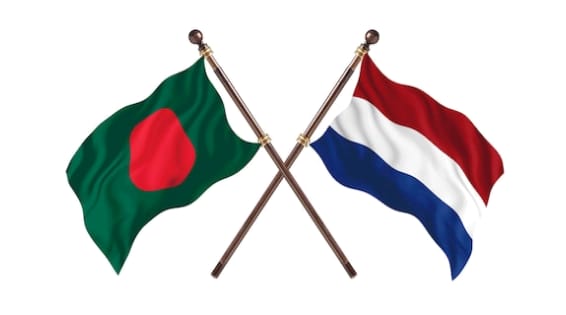Dutch Influence in Bengal:
The Dutch presence in Bengal commenced in 1630 when they established a trading post at Pipili, situated at the mouth of the Subarnarekha River in Odisha. They acquired trading rights from the Mughal government, which required them to pay a 3% customs duty on their exports.
Following the departure of the Portuguese from Hughli in 1632, the Dutch received a new Parwana from Subahdar Azam Khan in 1634, allowing them to establish a factory in Hughli. However, it wasn’t until sometime between 1645 and 1647 that the Dutch company established the factory in Hughli.
Between 1633 and 1638, the Dutch initiated the operation of factories in Orissa and Patna, although these were subsequently closed. In the early 1650s, the Dutch set up a factory in Dhaka, at the location currently occupied by Mitford, and had a garden house in Tejgaon.
During his early rule, Aurangzeb exempted the Dutch from paying transit duties in Bengal, Bihar, and Orissa. He set the customs duties at 4% in Hughli and 3% in Pipli and Balasore.
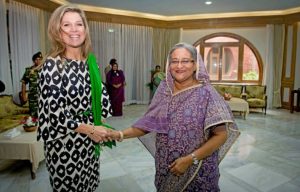
Bengal contributed approximately 40% to the average annual value of Asian commodities exported to Holland by the Dutch company in the early eighteenth century. Furthermore, 50% of textiles and 80% of silks imported into the Dutch Empire came from Bengal.
In November 1759, the English seized the Dutch factory at Baranagar, while the Dutch landed troops on the Sankrael Reach. The English emerged victorious in the naval battle and defeated the Dutch at Badera. The Battle of Badera marked the effective end of Dutch influence and power in India.
Political Ties:
The relationship between Bangladesh and the Netherlands has deep historical roots, predating the formation of Bangladesh itself. Notably, cooperation on water-related initiatives began as early as 1965. Bilateral relations have steadily evolved since the Netherlands was among the first European nations to acknowledge Bangladesh’s sovereignty, a significant milestone achieved on February 11, 1972, which included the establishment of the Dutch Embassy in Dhaka. This recognition marked the commencement of Dutch development assistance to foster Bangladesh’s socio-economic progress. In return, Bangladesh established a resident Mission in The Hague at the Ambassadorial level on November 7, 1995.

At present, the Netherlands stands as one of the foremost investors and trading partners in Bangladesh. However, the pinnacle of this bilateral partnership was reached in 2015, thanks to two notable high-profile visits within the span of less than a month. First, the Honorable Prime Minister Sheikh Hasina embarked on an official visit to the Netherlands from November 3 to 5, 2015. Shortly thereafter, Queen Máxima of the Netherlands, in her capacity as the UN Secretary-General’s Special Advocate for Inclusive Finance for Development, made a significant trip to Bangladesh from November 16 to 19.
Queen Máxima’s visit to Bangladesh underscored the paramount importance of financial inclusion as a driving force behind economic growth and development. It also reaffirmed the Netherlands’ unwavering commitment to supporting initiatives that advance financial inclusion and sustainable development within Bangladesh.
Development Cooperation
Shifting to (new) Development Cooperation policy (2022)
The Netherlands is updating its policy for Foreign Trade and Development Cooperation for Bangladesh. As Bangladesh will officially graduate from the LDC status in 2026, the Dutch side announced to end their aid projects to Bangladesh in 2030 and to shift the resources to other LDC countries. However, due to existing excellent bilateral relations between the two countries, the Foreign Ministry officials from the Netherlands Ministry of Foreign Affairs has informed that Bangladesh would now place as “combination country” with other South Asian neighbours, including India. As Bangladesh is a combination country, Dutch activities in Bangladesh would be shifting “from aid to trade”, meaning they would link e.g., food and water programs to the private sectors.
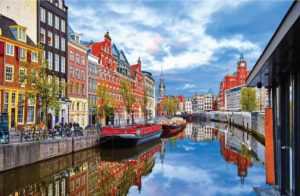
Dutch Foreign Direct Investments in Bangladesh
In 2020 The Netherlands overtook China to become the top foreign direct investor in Bangladesh. Bangladesh received $2.56 billion in foreign direct investment (FDI) in 2020, of which 15.6 percent or $400.21 million came from the Netherlands (Bangladesh Bank).
This alliance is further aided as the Government of Bangladesh (GoB) has instituted liberal investment and business operation policies regarding taxation, import duties, work documentation, and capital repatriation among others, as such that it encourages further foreign investment in the secondary and tertiary sector of the country.
Year-wise Dutch FDI to Bangladesh
2020: $2.56 billion
2019: $192 million
2018: $692 million
2017: $114 million
2016: $79 million
Sector-wise investment (2020)
Food processing: $183.47 million
Power sector: $174 million
Cement : $12.42 million
Trading: $11.25 million
Textile and weaving: $6.18 million
Leather and leather goods $2.23 million
The diplomatic relationship between Bangladesh and the Netherlands has evolved into a robust partnership characterized by cooperation, mutual respect, and shared objectives. Beginning with early collaboration on water initiatives in 1965, this relationship has transcended time and witnessed remarkable milestones.
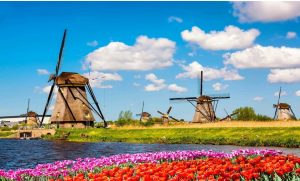
The Netherlands’ prompt recognition of Bangladesh’s independence in 1972 and the establishment of its embassy in Dhaka symbolized the commitment to this partnership. Over the years, development assistance from the Netherlands has significantly contributed to Bangladesh’s socio-economic development. This has been complemented by Bangladesh’s proactive steps, including the opening of its resident Mission in The Hague.
Presently, the Netherlands ranks among Bangladesh’s top investors and trading partners, forging strong economic bonds. The bilateral relationship is transitioning from a traditional aid-donor model to one emphasizing innovation and creativity-driven trade and investment. As Bangladesh progresses toward middle-income status by 2021, the focus is shifting towards creating new opportunities for private sector engagement in vital sectors like agriculture, leather/footwear, ICT, Blue Economy, and port development.
In the future, this diplomatic relationship is poised for greater heights. The partnership’s recent zenith, marked by high-profile visits of key leaders from both nations, demonstrates the mutual commitment to strengthening ties. Queen Máxima’s visit to Bangladesh in her role as the UN Secretary-General’s Special Advocate for Inclusive Finance for Development emphasized the importance of financial inclusion, economic growth, and sustainable development.
Furthermore, the bilateral trade relationship is flourishing, with the Netherlands being a significant destination for Bangladeshi products. The two nations are interlinked in the water sector, a domain in which they share similar challenges and solutions. Initiatives in water management have been successful, contributing to Bangladesh’s self-sufficiency in food production. This collaboration will continue to evolve, driven by “The Bangladesh Delta Plan 2100 Formulation Project.”
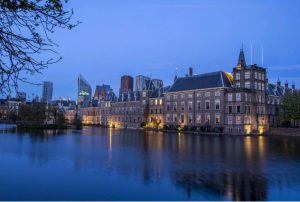
Food security and fisheries have also become central themes in the partnership. These initiatives, aligned with Bangladesh’s national food security plan, aim to improve access to healthy food, stimulate sustainable production, and strengthen trade links.
Moreover, education and training collaboration has been integral to the diplomatic relationship, with Dutch programs supporting Bangladeshi students and professionals.
The future prospects for the Bangladesh-Netherlands diplomatic relationship are optimistic. The transition towards innovation-driven trade and investment will unlock new avenues for economic growth and development. Partnerships in crucial sectors, from agriculture to the blue economy, hold the promise of creating a more resilient and prosperous future.
As both countries continue to learn from each other’s experiences and work towards common goals, the Bangladesh-Netherlands diplomatic relationship stands as a model of successful collaboration and shared aspirations, fostering mutual prosperity and development. With a strong foundation and a shared vision, the future looks promising for this enduring partnership.
Written by-
AKM Sayedad Hossain
Associate Editor
Diplomats Publication

